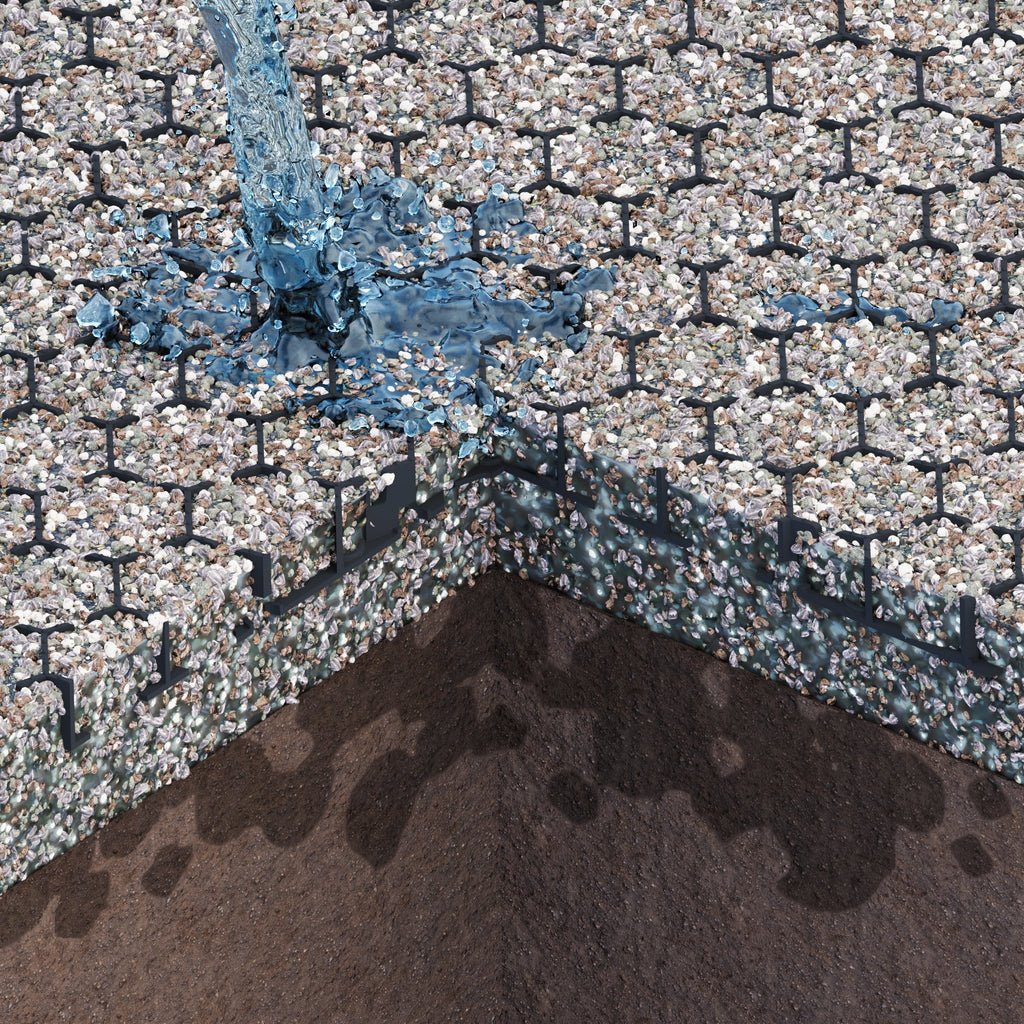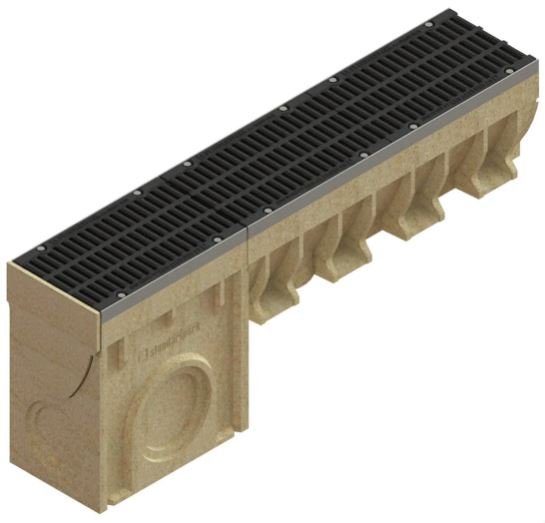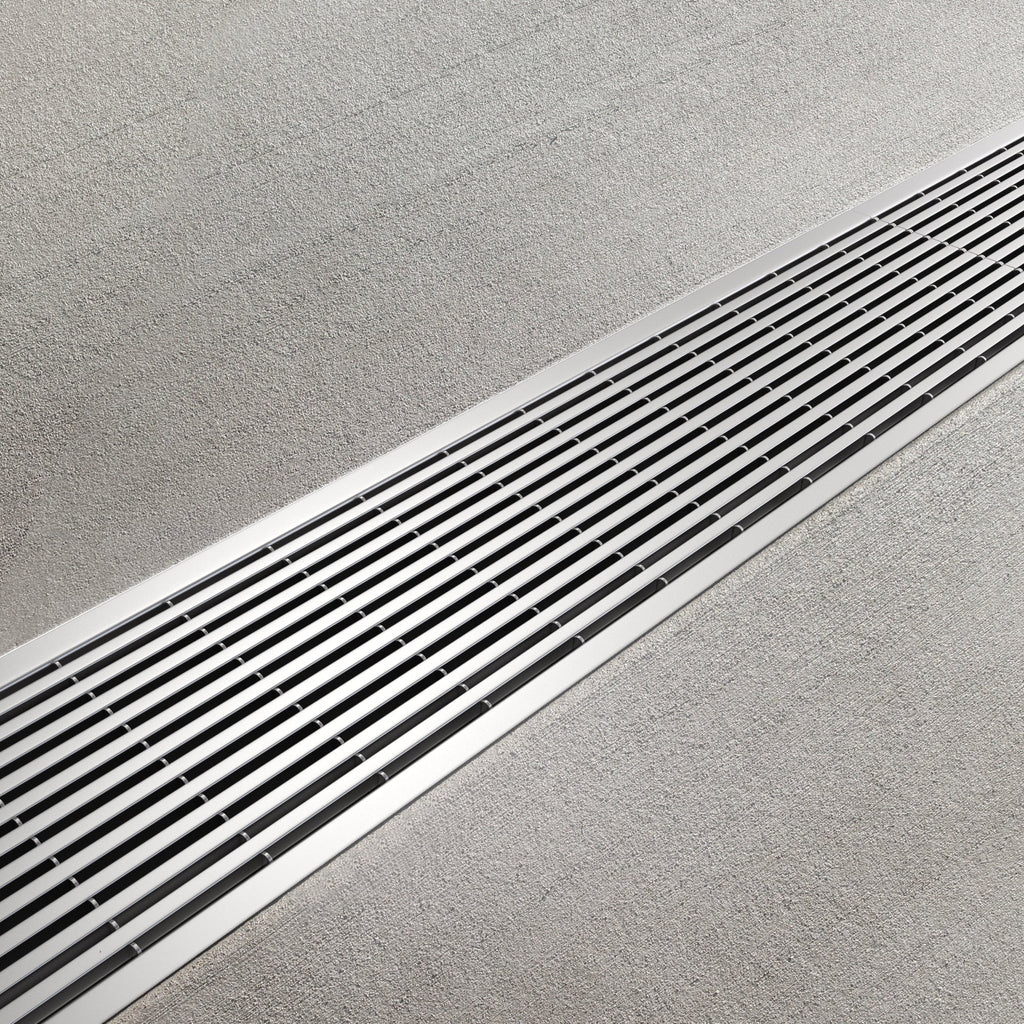Effective stormwater management plays a vital role in achieving sustainable development. In this comprehensive article, we will delve into the distinct characteristics of permeable and non-permeable pavers and their significant impact on drainage systems.
Whether you are a homeowner seeking the best solution for your driveway, a contractor working on a large-scale project, or a designer aiming for environmentally conscious design, having a thorough understanding of these paving solutions is key to making an informed choice and getting the best solution for your needs.
Understanding Permeable Pavers
Before we discuss permeable pavers, let's set the stage with an answer to a basic question: what are pavers?
Pavers are durable and versatile materials used for creating stable and attractive surfaces such as driveways, walkways, patios, and other outdoor areas. Permeable pavers are designed to allow water to infiltrate through the surface and into the ground. These innovative solutions offer several advantages over traditional non-permeable options. Let's delve into their key characteristics.
Permeability and Water Drainage Capabilities
Unlike non-permeable pavers, permeable pavers have an open-cell or porous structure that enables water to flow through. This permeability significantly reduces stormwater runoff, preventing potential flooding and relieving strain on drainage systems. By allowing water to infiltrate into the ground, permeable pavers promote natural groundwater recharge, maintaining the water balance in the environment.
Environmental Benefits and Sustainability
Permeable pavers play a vital role in sustainable development. They help mitigate the negative impacts of urbanization by reducing the amount of stormwater runoff and pollutants entering streams, rivers, and other water bodies. As such, incorporating a permeable paver solution into your project or outdoor space contributes to preserving the ecosystem and protecting water quality for future generations.
Exploring Non-Permeable Pavers
While non-permeable pavers, like concrete pavers, have been widely used for years, it's important to understand their limitations and challenges in terms of water drainage and environmental impact.
Stormwater Runoff and Drainage Issues
Non-permeable pavers do not allow water to permeate through their surface, leading to increased surface runoff. This excess runoff can overwhelm drainage systems, causing flooding, erosion, and water pollution. Proper stormwater management becomes crucial in areas where non-permeable pavers are extensively used.
Common Applications of Non-Permeable Pavers
Non-permeable pavers are commonly employed in areas where water drainage is less critical, such as heavily trafficked roads, high-density urban areas, or locations with established stormwater management systems. Their solid surface provides a smooth and durable finish, making them suitable for certain applications.
Benefits of Permeable Pavers
Permeable pavers offer a range of benefits that make them a great choice for sustainable construction and landscaping projects.
Effective Stormwater Management and Reduction of Runoff
One of the primary advantages of permeable pavers is their ability to manage stormwater effectively. By allowing water to infiltrate through the surface, these pavers reduce the volume and velocity of runoff, preventing potential flooding and erosion. They act as a natural filter, removing pollutants and sediments before water reaches water bodies.
Environmental Sustainability and Conservation
Permeable pavement supports environmental sustainability by mimicking the natural water cycle. They promote groundwater recharge, replenishing the aquifer, and maintaining a balanced ecosystem. Their use also reduces the burden on stormwater infrastructure and helps mitigate the heat island effect, contributing to a healthier and more sustainable environment.
Prevention of Erosion and Soil Compaction
Traditional pavers can lead to soil compaction and erosion due to the lack of water infiltration. Permeable pavers, on the other hand, allow water to penetrate the ground, preserving soil structure and preventing erosion. As a result, they contribute to healthier plant growth and decrease the need for additional soil management measures.
Improved Water Quality and Pollution Control
With their ability to filter and remove pollutants, permeable pavers enhance water quality by minimizing the transport of contaminants into water bodies. The porous structure of these pavers, combined with proper sub-base and aggregate layers, effectively traps pollutants, sediments, and oil residues, preventing their migration into the environment.
Enhanced Aesthetics and Design Flexibility
Permeable pavers offer a range of design options and aesthetic choices to suit various architectural styles and landscaping preferences. Whether it's a driveway, patio, walkway, or public space, the versatility of permeable pavers allows for creative and visually appealing designs that integrate seamlessly into the surrounding environment.
HexPave: The Superior Paving Solution
Vodaland's HexPave paving system takes permeable pavers to new heights. Designed with meticulous craftsmanship and attention to detail, HexPave offers exceptional performance, durability, and aesthetic appeal. With its unique Hex design and reliable functionality, HexPave ensures efficient stormwater management while enhancing the visual appeal of any project.
Practical Applications of Permeable Pavers
Permeable paving systems find extensive use in both residential and commercial applications, providing sustainable solutions for various outdoor spaces.
Residential Uses of Permeable Pavers
Permeable pavers are well-suited for residential projects, adding functionality and visual appeal to outdoor areas. From driveways and walkways to patios and garden pathways, these pavers offer excellent water drainage capabilities and contribute to a greener and more sustainable living environment.
Commercial and Municipal Applications
Permeable pavers are increasingly adopted in commercial and municipal projects due to their numerous advantages. They are ideal for parking lots, roadways, and public spaces, where effective stormwater management is crucial. Permeable pavers contribute to creating sustainable urban environments that prioritize environmental conservation and improve overall water management.
Permeable Pavers vs Non-Permeable Pavers: Selecting the Right Paving Solution

When it comes to selecting the right paving solution, several key factors should be considered, including site conditions, budget constraints, and environmental considerations. Assess the level of water drainage needed and any local regulations or codes that may apply. Also, think about the long-term benefits of the chosen paving solution, such as durability, maintenance requirements, paving material and aesthetic appeal.
By carefully considering these factors and consulting with experts like Vodaland USA, you can make an informed decision that meets your project's needs and contributes to a sustainable and resilient outcome.
Choose Vodaland for Sustainable Paving Solutions
The choice between permeable and non-permeable pavers significantly impacts stormwater management, environmental sustainability, and overall project performance. Permeable pavers, such as our HexPave system, provide a superior solution with its effective water drainage capabilities, environmental benefits, and design flexibility.
Whether it's for residential, commercial, or municipal applications, consider the advantages of permeable pavers and make a sustainable choice. Contact Vodaland today for expert guidance and innovative paving solutions featuring the HexPave system. Together, we can create a greener and more resilient future.



Leave a comment
This site is protected by hCaptcha and the hCaptcha Privacy Policy and Terms of Service apply.